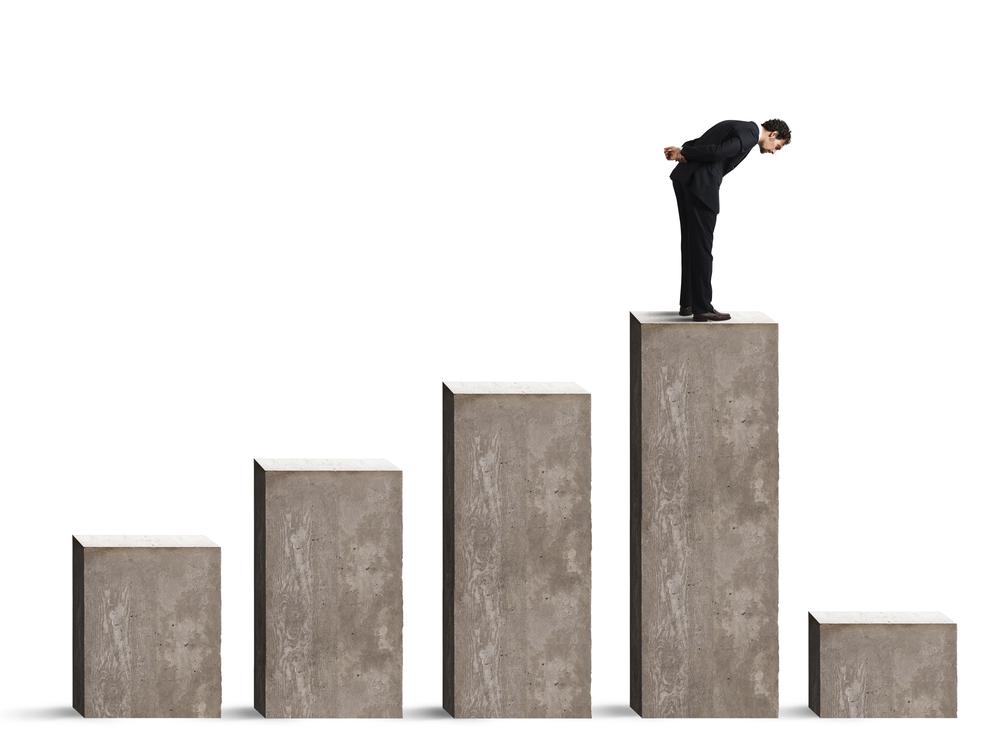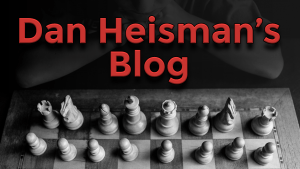
Don't Worry About Your Rating
The rating system is very accurate.
That's obviously good...
...but it's also potentially bad. Humans can't help but be affected by perceptions.
When players first start rated play, they are often unaware of ratings, but that all quickly changes. Once these new players realize how accurate the rating system is (assuming one plays enough games obtain that accurate rating), the focus on their chess often shifts from "What can I learn?" to "How can I improve my rating?"
This is a very dangerous game, as we shall discuss.
First let's consider what an accurate rating system does.
It creates a "shadow" of your playing strength, a numerical estimate of how good you are.
Why a shadow?

Because the rating system can never absolutely mirror your playing strength. Instead it tries to capture it as close as possible from your results and your opponent's ratings, which are also shadows of their playing strengths. But although it's a shadow, it's accurate enough that it can seem like a mirror.
The problem is that this shadow is not an end goal unless you are trying for something like a national or international title, where a rating is likely part of the prerequisite. And sure, if you are trying to get an invitation to the U.S. junior championship or the world youth championship, then obtaining a certain rating by a specific time is a different issue, but this type of rating concern is in the extreme minority.
If you get to have that problem, then you deserve some congratulations!

The key is to remember that your rating simply follows your playing strength. Nothing more, nothing less. If you get stronger, then eventually (probably sooner rather than later), your rating will rise. If you get weaker (say you are as old as me!) then, assuming you are still playing, your rating will eventually decline (The US Chess Federation has rating floors, but that's a whole different discussion).
Get better, your rating goes up; get worse your rating goes down.
Yes, you can try to "manipulate" your rating, but that can only go so far. For example, offering draws to higher-rated players in superior positions may seem like a good way to raise your rating, but actually it tends to distort it downward since your fear of their rating likely kept you from winning. And you usually get much more than twice the rating points from beating a higher-rated player than you do by drawing them (unless they are MUCH higher, when you might get bonus points, too).

Let's suppose your rating (and your playing strength) is X but you have a fantastic, "over-your-head" tournament where you play much better than you really are: your playing strength for the event is X+500 and your rating goes to X+100 when you really should just be X. You are overrated. What then?
Well, if you keep playing at strength X, your rating will fall back to X. If you improve your playing strength to X+100, then your rating will stay at X+100.
Similarly, suppose you have a disastrous tournament and your rating falls to X-100. No big deal. Simply play normally in your next events and your rating will go back to X. That's why players who "sell" rating points by losing on purpose really have nothing to lose; they will gain those points back without doing anything special. And, of course, the players they are selling those points to will either have to retire or keep cheating or their rating will simply fall back to its intended area.
Don't get me wrong, this kind of cheating doesn't happen that often; it's just to make a point.
OK, so let's say your goal is to make 1800 but you are only 1700 strength and you perceive that you are never going to be 1800 strength no matter what you do (possible but not always true). So you play many events till you play one so far over your head and get that 1800 rating. What now?
Well, you could do like my college roommate (who was close to 1800 strength) and retire forever with your 1800 rating. Or you could collect a bet from a friend who said you would never get to 1800. But none of that changes the fact that at the moment you are 1700 strength and if you continued without improvement that accurate rating system would bring you back to 1700.
Similarly, you can try to manipulate your rating by who you play. Normally if you want to improve, you should play players both somewhat above you and somewhat below you, with a slight emphasis on those above you, so you can learn more and be pushed toward improvement.
But suppose instead you play only those players 500+ points above you so that you can never lose many rating points in any one game. If you get that occasional draw, your rating should remain about the same (assuming you don't improve and get stronger, which you might if all those players 500+ above you review your games and teach you a good amount).
Or you could be a "bully" and only play those rated way below you, so you almost never lose, but you don't gain many rating points when you win. Again, not a great way to improve, but if you hate losing, that may be satisfying. Or you might, as mentioned above, offer draws to stronger players when you are winning for fear you will not only throw away the win, but also the draw and lose and -- horrors -- lose a few rating points while you learn something.

But that accurate rating system actually means something more. It means you can (mostly) forget about your rating if you want your rating to go up! It's just a distraction, something that would not even be there if you kept playing chess in a non-rated capacity. If you don't worry about your rating and instead worry about your playing strength, then mostly good things happen.
No matter how we look at it, we should come to the same conclusion: don't worry about your rating...the best way to "manipulate" your rating, especially upwards, is to get better.
That's not always easy of course, but doing the work should eventually make you a better player. And when you become a better player then, and only then, will your results consistently improve witha real and meaningful ratings rise.






